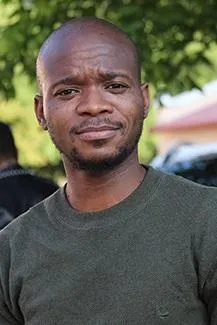Scientist names frogs and reptiles in SA's languages
language

Herpetologist Dr Fortunate Phaka was undertaking a groundbreaking project to ensure that South Africa’s frogs, snakes and lizards could be named in its nine official indigenous languages.
Image: Supplied
WHILE many were baking banana bread during the COVID-19 lockdown, South African herpetologist Dr Fortunate Phaka was undertaking a groundbreaking project to ensure that South Africa’s frogs, snakes and lizards could be named in its nine official indigenous languages.
For years, these amphibians and reptiles were mainly known by their scientific or English names which meant little to the communities where many of them were found. Now, thanks to a multilingual effort led by Phaka, an academic at North West University, that has changed.
Through his research with the support of a team a unique name for each frog or reptile species across all our languages is now available. “Before we had these names, I would go into the field with local guides and use scientific or English names and they would have no idea what I was talking about,” Phaka said. “Now I can speak to them using a name they recognise, which saves time, prevents confusion, and increases engagement with the animals.”
Results of the interdisciplinary research which spanned biology, linguistics and cultural preservation were published in the African Journal of Herpetology. Now there are 4 887 indigenous names for the 543 species of amphibians and reptiles found in South Africa.
But it’s about more than just names. “When people can call these animals by a name in their own language, it raises awareness,” he said. “It gives the animals visibility. That’s a vital part of conservation planning and it also means people feel included in biology.”
Phaka’s research started online during the pandemic when he would show pictures of frogs and snakes to people and ask them what it was called in their communities. Later he travelled from village to village. “The names are usually based on something people can see or something people can hear.” Where no names for a species existed the researchers created new names based on familiar traits.
He says scientific names are often in Latin or Greek making it alien and largely incomprehensible to those who live among the species and often play key roles in their conservation. But now children can learn the names of frogs and snakes in languages like isiZulu, Xitsonga, isiNdebele and Tshivenda.
“It was quite fun to learn that actually people do perceive biodiversity the way modern scientists perceive it, but because they're not constantly looking for the minor differences in these animals, they don't perceive the diversity at a greater level than modern scientists do. So it was really fun and I got to play around with a bit of language learning because once we got those general names, the idea was to not replace them, but to build on them.”
Phaka learnt many things about his own field of specialisation while engaging with locals. For instance there is a frog which is known as the rainmaker because it became active just before it starts to rain. “At first I thought it was folklore that there was no reason behind it. But when people saw a frog repeatedly, and then let's say five minutes later rain started falling, they started saying this frog brings rain. But from a biological perspective the drop in temperature and the rise in humidity is perfect for frogs.”
He says for the elders, many of the names that now exist make sense and are based on what they already know. “So then they don't feel like, oh, those bloody scientists came along again and told us what to do. Now they see that, say hold on, my name is still there, they just extended it. So that guy listens to me while I'm speaking to him.”
Phaka has just completed a poster in one indigenous language and more posters and books are to follow as soon as he can secure funding for these projects. He’s also contributed indigenous names to a newly published reptile field guide, where each species now appears with five local names plus the scientific one.
“The dream is to have a database or an app where you can search for any South African frog or reptile and find its name in all 11 official languages. “It’s slow work and I do most of it in my spare time but I think it’s worth it."